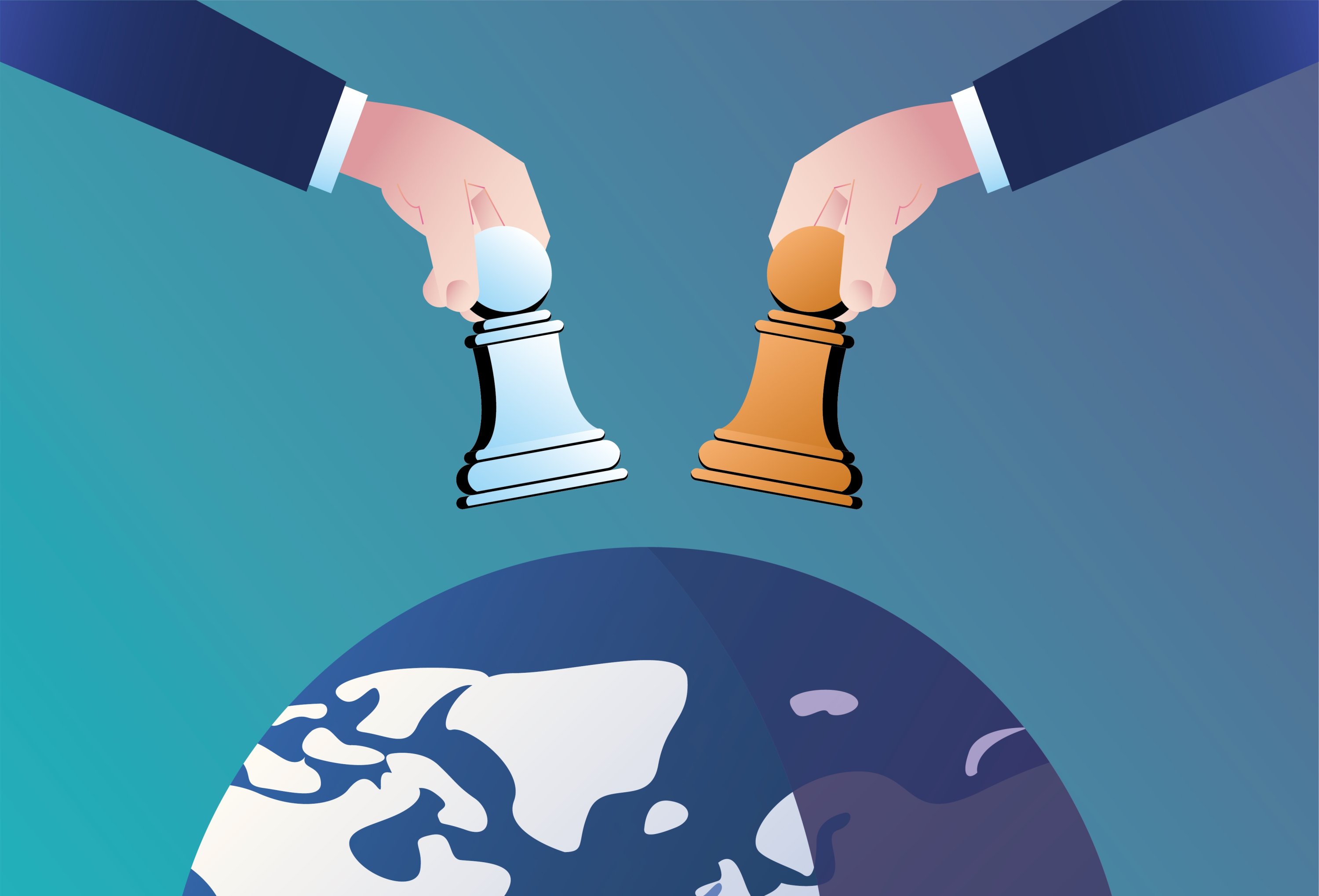Global Politics: How Rising Superpowers Are Reshaping International Relations
The landscape of global politics is constantly evolving, and in recent years, rising superpowers have become key players in reshaping international relations. The influence of powerful nations has always been a driving force in world affairs, but the emergence of new and growing powers has changed the dynamics of diplomacy, trade, security, and global governance. Understanding how these rising superpowers—especially China, India, and others—are shaping the geopolitical scene is crucial for navigating the future of international relations.

The Shift of Global Power: From Unipolarity to Multipolarity
In the late 20th century, the global political order was dominated by a unipolar system with the United States as the sole superpower after the end of the Cold War. The collapse of the Soviet Union in 1991 led to a period of American dominance, both militarily and economically. However, this era is gradually giving way to a more multipolar world order, where multiple countries wield significant influence in global affairs.
The Rise of China: Economic and Strategic Power
China has emerged as one of the most significant rising superpowers in the 21st century, driven by its rapid economic growth, military modernization, and geopolitical ambitions. As the second-largest economy in the world, China has become a major player in global trade, finance, and technology. Under the leadership of President Xi Jinping, China has expanded its influence through initiatives such as the Belt and Road Initiative (BRI), which seeks to create trade and infrastructure networks connecting Asia, Europe, and Africa.
China's growing presence on the global stage is also seen in its military expansion. The country has invested heavily in modernizing its armed forces and asserting its territorial claims, particularly in the South China Sea. This has created tension with the United States and other regional powers, such as Japan and India, and has raised concerns about China's increasing influence in global governance institutions like the United Nations and the World Trade Organization.
India's Emerging Role: A Rising Economic and Diplomatic Force
India, with its large population, vibrant democracy, and rapidly growing economy, is another rising superpower. As the world's most populous democracy and a key player in Asia, India is positioning itself as a counterbalance to China's growing influence in the region. India's economy is the third-largest in Asia and is projected to continue growing at a fast pace, making it an increasingly important economic partner for both developed and developing countries.
On the diplomatic front, India has strengthened its relationships with major powers, including the United States, Japan, and the European Union. India has also sought to play a central role in global institutions, advocating for reform of the United Nations Security Council and promoting regional cooperation through the South Asian Association for Regional Cooperation (SAARC) and the Indo-Pacific Economic Framework.
India’s role as a rising superpower is particularly significant in areas such as technology, space exploration, and defense, with the country making strides in sectors like information technology, renewable energy, and defense manufacturing. India's strategic importance is growing as it becomes a key partner in global efforts to counterbalance China's assertiveness in the Indo-Pacific region.
The U.S.-China Rivalry: A New Cold War?
One of the most significant shifts in global politics in recent decades has been the intensifying rivalry between the United States and China. The competition between these two superpowers is reshaping the global balance of power and influencing international relations across various dimensions, from trade to technology to military power.
Economic Competition: Trade Wars and Tariffs
The U.S.-China trade war, which began in 2018 under the administration of President Donald Trump, brought to light the deep economic tensions between the two nations. The trade dispute, driven by concerns over unfair trade practices, intellectual property theft, and market access, has had significant implications for global trade. Both nations imposed tariffs on hundreds of billions of dollars worth of goods, disrupting global supply chains and affecting economies worldwide.
While there have been attempts at negotiation and resolution, the U.S.-China economic rivalry is expected to continue shaping the global economy for the foreseeable future. China’s growing technological prowess, particularly in areas like 5G, artificial intelligence, and e-commerce, is seen as a challenge to American technological dominance. This has led to calls for the U.S. to invest in innovation and maintain its leadership in emerging technologies.
Military Tensions: The South China Sea and Taiwan
Beyond economics, military competition between the U.S. and China has raised global security concerns. The South China Sea, where China has made territorial claims over disputed waters, has become a flashpoint in U.S.-China relations. The U.S. Navy conducts freedom of navigation operations in the region, challenging China’s extensive claims, while China continues to militarize artificial islands in the area.
Another key issue is Taiwan, which China views as a breakaway province but where the U.S. has strategic interests due to its military and economic ties with the island. Tensions over Taiwan have escalated in recent years, with China conducting military exercises near the island and the U.S. increasing arms sales to Taiwan. The potential for conflict in this region has significant implications for international peace and stability.
Global Alliances: The U.S. vs. China
In the midst of this rivalry, both the U.S. and China have sought to form strategic alliances to counterbalance the other’s influence. The U.S. has strengthened its relationships with allies in Europe, the Indo-Pacific, and beyond, through partnerships such as NATO and the Quad (a strategic forum comprising the U.S., Japan, India, and Australia). Meanwhile, China has sought to solidify its influence in regions such as Africa, the Middle East, and Latin America, through initiatives like the Belt and Road Initiative.
The Role of Regional Powers: Influencing Global Politics
As superpowers like China and the U.S. engage in competition, other regional powers are also playing increasingly important roles in shaping global politics.
Russia’s Resurgence: A Global Player
Russia, under President Vladimir Putin, has sought to reassert itself as a global power, particularly in the areas of energy, defense, and regional security. Russia’s annexation of Crimea in 2014 and its involvement in the Syrian Civil War have demonstrated its willingness to challenge international norms and assert its influence in its near abroad. Russia’s close relationship with China has also been a significant factor in the global political landscape, as the two nations have cooperated on issues such as energy trade and countering U.S. influence.
The European Union: A Diplomatic and Economic Power
The European Union (EU) remains a key player in global politics, particularly in areas such as trade, diplomacy, and climate change. As a bloc of 27 member states, the EU represents a significant portion of global GDP and is a leading force in setting international standards on issues such as data privacy, environmental protection, and human rights. However, the EU faces internal challenges, including Brexit, economic disparity between member states, and rising populism, which may impact its ability to project power on the world stage.

The Middle East: A Region of Strategic Importance
The Middle East continues to be a region of great geopolitical importance, with powers such as Iran, Saudi Arabia, and Turkey playing central roles in shaping the balance of power. The region is a critical hub for energy resources, particularly oil, and is a key site for international competition and cooperation. The ongoing tensions between Iran and the U.S., the Saudi-led coalition’s involvement in Yemen, and Turkey’s actions in Syria have all contributed to the region’s instability and its significance in global politics.
The Future of Global Politics: A Multipolar World?
As rising superpowers continue to assert themselves, the future of global politics may increasingly be defined by a multipolar world order, where power is distributed among multiple nations rather than concentrated in a single superpower. This shift could lead to greater competition but also increased cooperation in areas like climate change, international trade, and global health.
Challenges of a Multipolar World
A multipolar world order presents challenges in terms of balancing global power dynamics and ensuring that all nations' interests are represented. It may lead to more frequent tensions between rising superpowers, as each seeks to assert its dominance in various regions. At the same time, new alliances may emerge as countries seek to counterbalance one another’s influence.
The Role of Global Institutions
International institutions such as the United Nations, World Trade Organization, and World Health Organization will play an increasingly important role in mediating conflicts, setting global standards, and addressing challenges that require multilateral cooperation. The ability of these institutions to adapt to the new geopolitical realities will be crucial in shaping the future of global governance.
Conclusion
Rising superpowers are reshaping the landscape of global politics in profound ways. The competition between the U.S. and China, the strategic importance of regional powers, and the evolving dynamics of global alliances are all contributing to a rapidly changing world order. As the global balance of power continues to shift, understanding the role of these rising superpowers—and their influence on international relations—is essential for navigating the future of global politics. Whether in trade, security, or diplomacy, the actions of rising powers will determine the trajectory of the 21st century.












